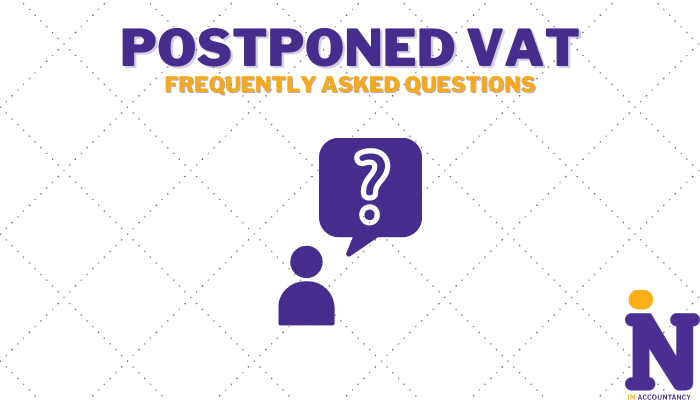Postponed VAT is a Brexit new kid on the block, and there seems to have been quite a lot of confusion about what is is, how it’s applied, and how long it may or may not last.
In this article we try to answer your questions about Postponed VAT.
What is postponed VAT?
At its simplest, postponed VAT is a way for UK VAT registered businesses to account for import VAT after Brexit.
After the UK officially left the EU, UK based VAT registered importers were for the first time required to pay VAT on goods entering the UK exceeding £135 in value.
Postponed VAT means that rather than having to pay VAT on goods immediately on their entry to the UK, businesses can instead report it on their VAT return.
There were rumours afoot that the postponed VAT scheme would only be available for the first six months post Brexit, however this is false – there is no intention to do away with this scheme at present.
What are the Benefits of Postponed VAT for business?
The scheme was created by the government to help businesses avoid a negative impact on their cashflow and fulfillment by delaying the VAT payment point.
Without the postponed VAT accounting scheme, businesses would have found their goods being held at customs until the VAT was paid.
Who can take advantage of the postponed VAT scheme?
All UK VAT registered businesses who import goods (from anywhere outside of the UK for British based companies) for business use into the UK can apply for the postponed VAT scheme.
What about Northern Ireland?
Well, good that you ask – as Northern Ireland is still part of the EU VAT area, postponed VAT is not required and does not apply.
Northern Irish businesses importing from the EU should continue to use the reverse charge scheme, although they can apply for postponed VAT for imports from anywhere else in the world.
Sales between Great Britain and Northern Ireland are of course domestic transactions and therefore the standard UK VAT procedure applies.
How can I pay Import VAT?
Import VAT can be paid by:
- Freight agent/deferment and then reclaimed afterwards (C79)
- Postponing VAT (MPIVS)
If you’re a fully taxable business: Make sure that you’re inputting data into your accounting software correctly – you will need to ensure that you are MTD (Making Tax Digital) compliant.
Please note that MTD will apply to all VAT registered businesses from April 2022.
If you own a partially exempt business, the same applies but you may be unable to reclaim all of the VAT incurred.
Where can I access the Monthly Postponed Import VAT Statements (MPIVS)?
Click here to retrieve your MPIVS – you will be required to enter your government gateway login details.
Bookmark the link so you can easily find it again!
Don’t forget to download your MPIVS or print them out – they are only available online for 6 months.
I haven’t received any paperwork from HMRC or my freight agent – what should I do?
Don’t worry – some freight agents use postponed VAT accounting, even if you’ve not asked them to.
Click here to enrol onto the online Customs Declaration Service (CD)
You’ll need your:
- EORI number
- UTR number
- Business address
- NI Number
- Date of business start-up
You will then receive an access link to your MPIVS via email, along with a monthly email reminder to ensure that you remember to capture your import VAT figures.
Please check that you have access to your MPIVS. As previously mentioned, MPIVS are only available for 6 months.
What should I do if I receive an invoice without VAT on it from an EU supplier? Do I reverse charge like before?
If the invoice is for services: reverse charge as you did prior to Brexit.
If the invoice is for goods: do not reverse charge.
If a freight agent pays the import VAT at the dock/port, or if you have a deferment account: you will receive a C79 in the post from HMRC – use this to reclaim the VAT.
If your using postponed import VAT (whether by choice or not): use the specified MPIVS link above
Please note: if you are not using the same freight agent every time, different freight agents will handle your imports, and therefore:
- Some will automatically default to using postponed import VAT.
- Others will use their own deferment account and recharge you – the C79 will arrive in the post afterwards
You must be aware of these two different ways in which VAT can be treated on imports.
I haven’t yet received a C79 in the post?
Check your paperwork – the freight agent may have defaulted to postponed VAT without telling you.
As C79s are sent in the post, it is possible for them to get lost, but the former is much more likely.
If you believe your C79 was lost in the post, you can request copies from HMRC.
Still unsure of something?
Please contact us here if you have any queries or need some friendly advice – we’d be happy to help.
Alternatively, come and visit us in Hazel Grove for no obligation coffee!







